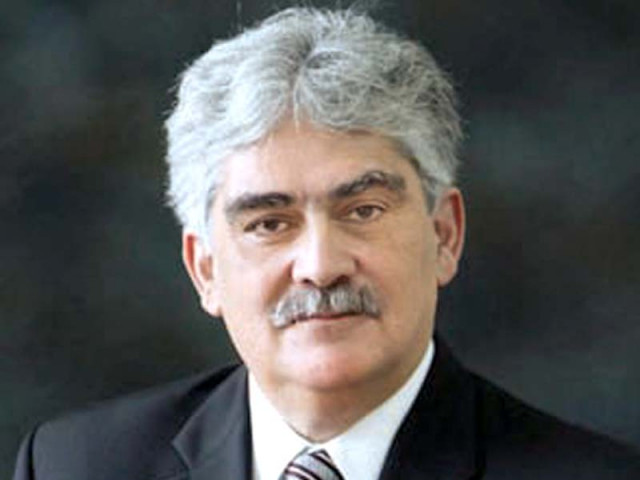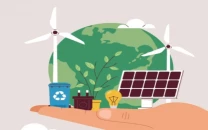Self-accountability: In development spending, govt admits its own mistakes
Planning Commission accepts flaws in PSDP project approval, recommends changes.

In what appears to be an unusual development, the government is willing to admit its own mistakes when it comes to allocating development spending.
A highly critical report issued by the Planning Commission disclosed that the two top government bodies responsible for allocation funds from the Public Sector Development Programme have been violating the law with respect to authorising development projects.
The report alleges that the Central Development Working Party, heading by Planning Commission Deputy Chairman Nadeemul Haq, and the Executive Committee of National Economic Council, headed by Finance Minister Abdul Hafeez Shaikh, have been bowing to political pressure and approving projects without a full review, compromising the government’s ability to complete projects on time or within their allocated budgets.
The CDWP is meant to approve projects below Rs1 billion in cost while ECNEC’s mandate is to review and authorise projects above that size.
According to the report, the CDWP approved 192 projects worth Rs986 billion over the course of four meetings held between October 2010 and April 2011. The CDWP rejected only 12 projects (worth Rs45.5 billion) and deferred another 12 (worth Rs53.3 billion). The minutes of the meetings reveal that many projects were approved without even reviewing their funding application – a document known as the PC-1.
Part of the reason for the rush appears to be the fact that ECNEC has reduced the time allowed to the Planning Commission for the appraisal of projects from three months to three weeks.
“Sanctioning projects without proper appraisal, quantification of benefits and assessment of absorptive capacity represents a major breakdown of the approval process,” states the report.
The review of the process was ordered by Nadeemul Haq himself, even though his own performance is indirectly criticised in it.
“By publishing this report, we ourselves want to tell people that there is a problem with the system and we want to change it but the process is slow,” the Planning Commission chief told The Express Tribune. He said the biggest problem was approval without evaluation, not merely the approvals.
The report was also critical of ECNEC, citing a December 2010 meeting in which the body, chaired by the finance minister, approved 12 projects, some conditionally, despite the fact that many had no details of their costs.
These lapses in following procedure during the approval process results in several projects being approved without the funding for them being secured, resulting in delays and a further escalation of costs. And new projects keep getting approved without any regard to the completion status of old ones, or the government’s capacity to manage the new projects successfully.
A testimony to these rising costs is the sharp increase in what is known as the “throw forward”, or the total estimated expenditure of the government’s ongoing development projects minus what has already been spent on them. During the last five years, the throw forward has risen from Rs1 trillion at the end of fiscal year 2007 to Rs3.1 trillion by July 2011.
A World Bank review of the PSDP notes that most of the projects are too small to justify their project management overhead costs. About 45% of the projects are below Rs100 million in size and a further 35% between Rs100 million and Rs500 million.
The Planning Commission recommends that in the future on new projects that are in priority sectors or located in less developed areas of the country – Balochistan, for example – be approved. The viability and cost structure of every project should be reviewed thoroughly by specialists and verified.
To minimise budgetary impact, only projects involving foreign funding should be approved, it recommends. The commission also suggests that, after granting the provinces fiscal autonomy through the 18th Amendment to the Constitution, the federal government should not fund projects in any province except Balochistan.
Published in The Express Tribune, February 19th, 2012.


















COMMENTS
Comments are moderated and generally will be posted if they are on-topic and not abusive.
For more information, please see our Comments FAQ